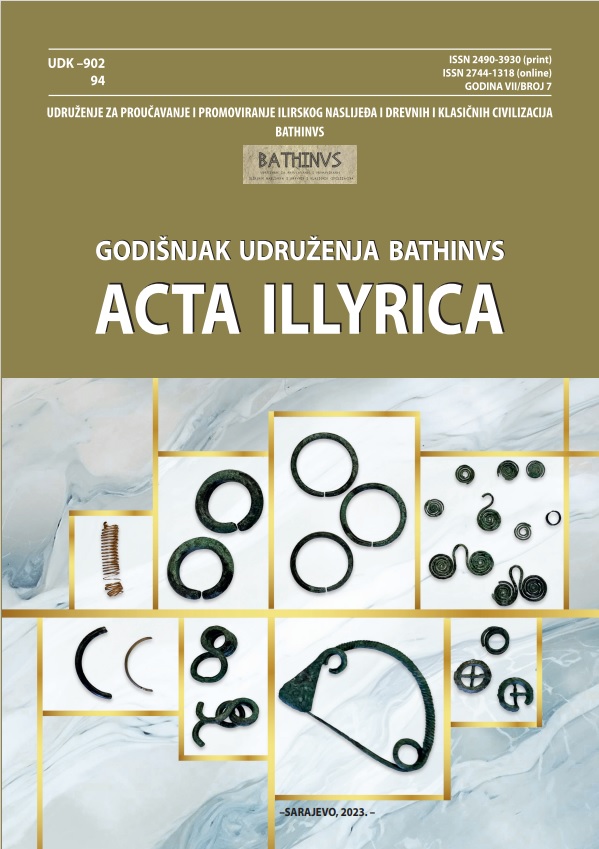Kolektivna agentivnost i toposi u funkciji gradnje rimskog nacionalnog i nadnacionalnog identiteta u historiografskom narativu V. Paterkula
Collective agency and topoi in the function of creating Roman national and supranational identity in the historiographical narrative of Velleius Paterculus
Author(s): Seada BrkanSubject(s): Cultural history, Social history, Ancient World, Lexis, Historical Linguistics, Sociolinguistics, Identity of Collectives
Published by: Udruženje za proučavanje i promoviranje ilirskog naslijeđa i drevnih i klasičnih civilizacija “BATHINVS”
Keywords: national and supernational identity; discourse strategies and macrostrategies; toponyms; lexical and grammatical choices; collective agency and topoi;
Summary/Abstract: Language, as the linguistic manifestation of extralinguistic experiences, often functions as a means for the creation and expression of societal inequality. In addition to the fact that the participants of social reality are almost never socially equal, which means that someone has power over others, the linguistic reflection of those relationships always derives from the author, who has the power to control the context; his practical instrumentation comes from his own lexical and grammatical choices, as well as their conscious and targeted combination. In this paper, the focus is on noticing and distinguishing, and analyzing and interpreting the choices of V. Paterculus as an author within the framework of collective agency and the topoi with which the Roman national identity is first built, and then positioned as superior to the identities of the peoples with whom the Romans came into contact. While for authors from the 1st century A.D. the language strategies touched on in this paper were not available, since they were neither described nor defined before the 20th century, ancient writers used them completely unconsciously in their spontaneous writing; therefore, these texts, as well as modern ones, are subject to linguistic analysis, interpretation and criticism precisely according to the guidelines of modern language criteria. In this paper one of the possible methods of analysis of the construction of the national and supranational identity of a nation in the historiographical discourse will be offered; the analysis will be based on discursive strategies and macro-strategies offered by the discursive-historical approach and based on empirical data gathered in tabular reviews. An indispensable part of the analysis will be the analyst’s criticism, which derives from democratic norms, human rights and the criteria of rational argumentation from today’s temporal, cultural and political context, because the purpose of critical discourse studies is to expose and point out how domination, i.e., the abuse of social power and inequality, are realized and reproduced in text and speech, but also on how to oppose them in a social and political context (van Dijk 2001, 352).
Journal: Godišnjak Udruženja BATHINVS “Acta Illyrica”
- Issue Year: 7/2023
- Issue No: 7
- Page Range: 85-108
- Page Count: 24
- Language: Bosnian

